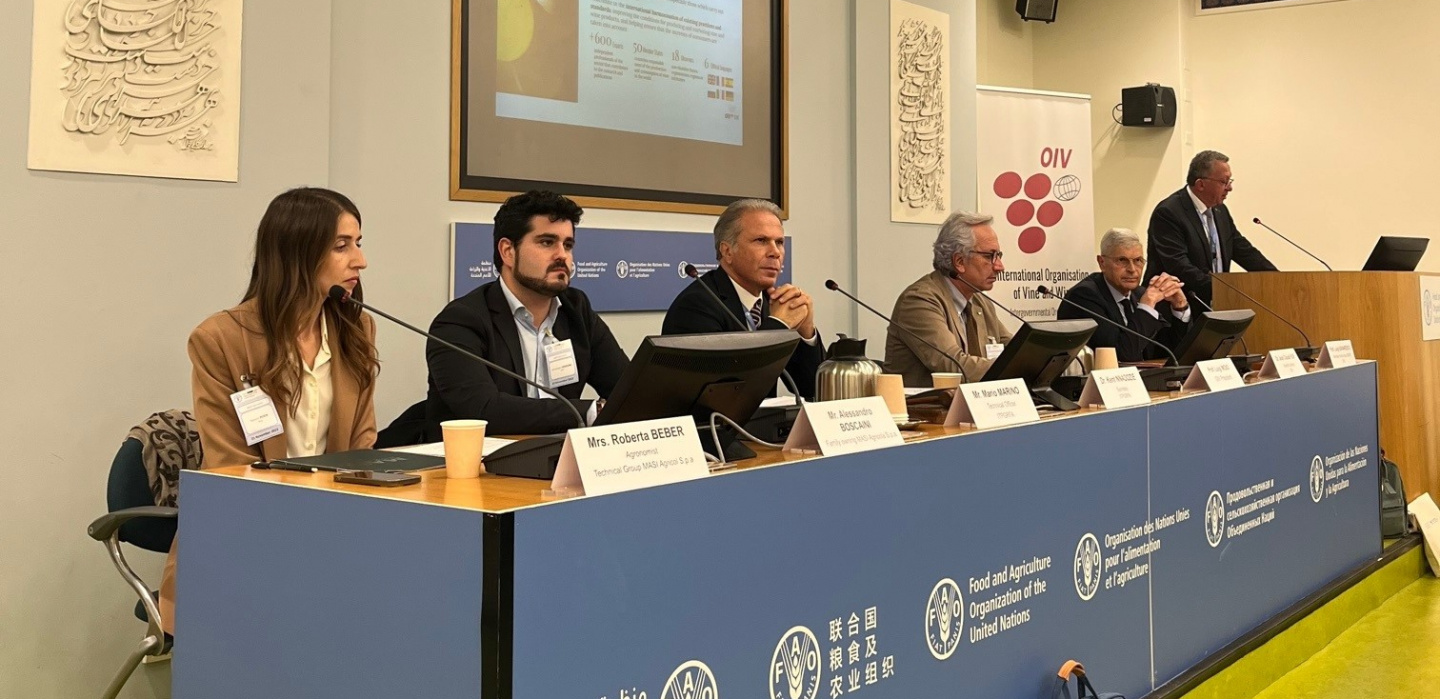FAO and OIV working for biodiversity in the vineyard: Masi presents its experience with Oseleta and native grapes
The OIV (International Organisation of Vine and Wine) in collaboration with the FAO (Food and Agriculture Organisation of the United Nations), has held a conference at its headquarters in Rome, entitled "Genetic resources for vines: preserving the past to guarantee the future" and has chosen Masi Agricola for its only case history. For Masi this was the first chance to present its experiences in such a highly prestigious international context, after the OIV had also asked it to represent Italy in its "Consortium", a concentrated technical group that helps research in the winemaking sector and dissemination of its results. The other members, in addition to Masi (Italy), are: Viña Concha y Toro (Chile), Moët Hennessy (France), Sogrape (Portugal), Familia Torres (Spain) and Yalumba Family Winemakers (Australia). The conference was attended by leading experts and authorities from the international oenological and scientific worlds who came together to stress the importance of biodiversity in viticulture - with an invaluable treasure trove of more than 6000 grape varieties and clones - and the defence of this biodiversity to ensure a sustainable future, which will preserves the unique nature of viticultural landscapes and the unique experience of wine.
Masi - with its Technical Group - has always worked on viticultural biodiversity, with particular regard to the grape varieties of the Venetian regions, in collaboration with Universities and Research Centres. The results have been presented in the international context of the decades of Technical Seminars held at Vinitaly, and published in both scientific and technical circles. In this case, it was Alessandro Boscaini, the eighth generation of the owners of Masi Agricola, and Roberta Beber, agronomist and Technical Group member, who made the presentation to the FAO. The case history chosen was about the ancient Oseleta variety, a Veronese grape saved from oblivion thanks to Masi's efforts after decades of neglect thanks to its low yields and late ripening but now an officially permitted grape in production regulations; and also Garganega, the main component of Soave, plus the Tuscan Vermentino grape. Illustrative wines on tasting were drawn from the company’s prestigious range: Osar (100% Oseleta), Colbaraca, (100% Garganega), and Bellovile (100% Vermentino).
The meeting was part of the Tenth Session of the International Treaty on Plant Genetic Resources for Food and Agriculture under the auspices of the FAO – a United Nations Organisation – which was represented at the conference by Secretary Dr. Kent Nnadozie and Technical Officer Mario Marino. Both emphasised the importance of the conservation of genetic resources for the future of viticulture. The OIV’s President Luigi Moio was also present, and other contributions came from Scientific Director Jean-Claude Ruf, and Luigi Bavaresco, Professor of Viticulture at the Catholic University of Piacenza, who introduced the topic of disease-resistant grape varieties and climate change.
On this occasion, signatures came from the ITGRFA (International Treaty on Plant Genetic Resources for Food and Agriculture) and OIV who signed a Letter of Intent to collaborate on the preservation of the genetic heritage of vines; Masi is proud to have been an active participant at the event.


